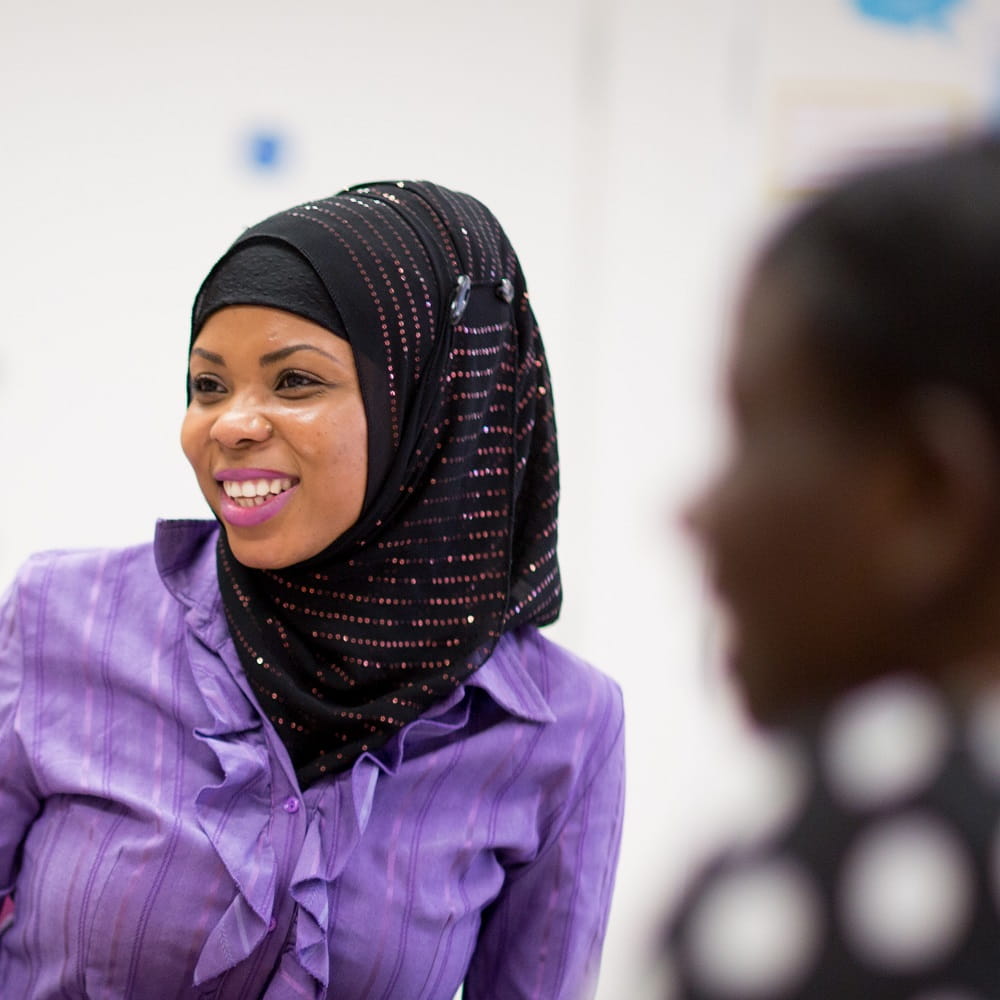Race inequalities in healthcare
.jpg?mh=1000&mw=1000&hash=A10D38D5CD841C941D9322A9FC379D1C)
Professor Winifred Oluchukwu Eboh is Director of Staff Development and Wellbeing as well as Postgraduate Research Director in the School of Health and Social Care. Winifred is a Registered General Nurse and Midwife who has been teaching in Higher Education since 1998. Her areas of teaching include research and evidence-based practice, genetics related to the haemoglobinopathies — namely sickle cell and thalassaemia — and disparities in health amongst marginalised communities. She currently teaches undergraduates and postgraduate students, and supervises doctoral students.
She co-chairs a working group addressing racism in health and social care, and successfully secured funding from Health Education England to develop a website that will provide training for health professionals on racism in healthcare settings.
Professor Eboh is also a member of our Race Equality Charter Self-Assessment Team (REC SAT) which is leading a full evaluation of race equality across the University and working with our community to develop a four-year institutional action plan. Here, she explains her involvement in this important work.
How did you get involved in the REC SAT?
Through the Tackling Racism Working Group established after the brutal killing of George Floyd in 2020.
Why is it important that we achieve Race Equality Charter status and what does it mean to you?
The University of Essex has an international community with students and staff from across the world. We are a rich and vibrant community, and we should be proud of what we have and do what is needed to protect it. Gaining the Race Equality Charter is the right step to establish and maintain race equality.
Tell us more about the race inequalities in healthcare.
The COVID pandemic shone a light on the inequalities of health and healthcare amongst Black, Asian, Mixed, or Other ethnic groups with statistics provided by Public Health England (.pdf) and research published in medical journals such as the Lancet paper on ethnic differences showing higher rates of positive COVID test results, severe illness, and death in these communities. I had also observed the disparities in healthcare provisions for patients diagnosed with sickle cell and thalassaemia, genetically inherited blood disorders that affect mainly people of Black, Asian, Middle Eastern, and Mediterranean communities. For me as a lecturer in adult nursing, it is important to ensure that we educate future nurses and allied health professionals to recognise these disparities, and equip them with the knowledge and skills to challenge the status quo and address these health inequalities.
What would you like to see change?
I would like to see healthcare that addresses the ‘elephant in the room’ which is structural racism. Despite various high profile reports denying the existence of structural racism, it is evident that existing healthcare systems are not addressing the needs of Black, Asian, and Minority Ethnic communities, and there is need for a systemic change that enforces evidence-based policy recommendations from the NHS Race and Health Observatory, a body established by NHS England to better understand these health inequalities.
Why are teaching and education in this area key to instigating real change in our healthcare systems?
The School of Health and Social Care can be instrumental in the development of future healthcare practitioners who can challenge existing practices that perpetuate health inequalities. They should embody the ethos of the University of Essex which has a long history in standing for human rights. We have started this through the decolonisation of our curriculum; however, this should not just be a paper exercise, but one that translates into meaningful change beyond the University into practice settings and the wider community.
What is your working group currently tackling?
It is ironic that the very people who are themselves at the receiving end of racism are expected to change a system which is a wider societal issue. We are currently developing a website called Dare to Care (Creating an Anti-Racist Environment) which provides resources for everyone to reflect on their own experiences and reactions to racism. It is up to those who inflict racism to change, and those who silently stand by and witness it to take a stand against racism:
“In a racist society, it is not enough to be non-racist; we must be anti-racist.” — Angela Y. Davis

